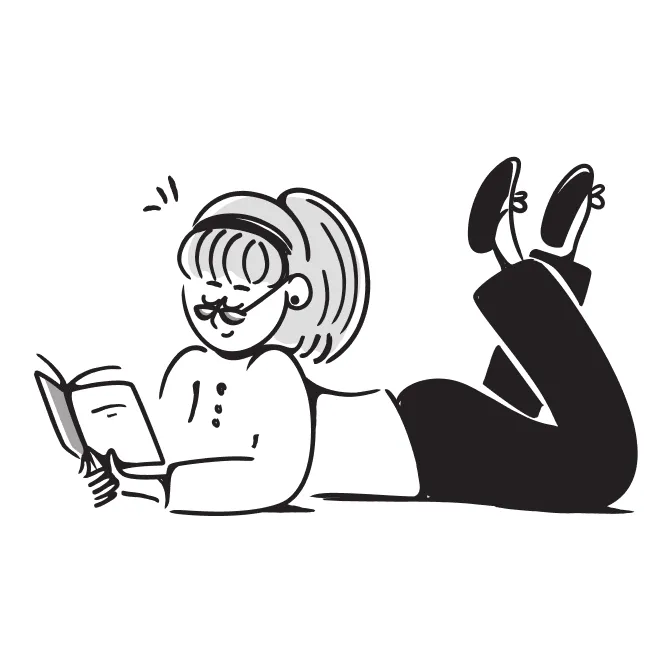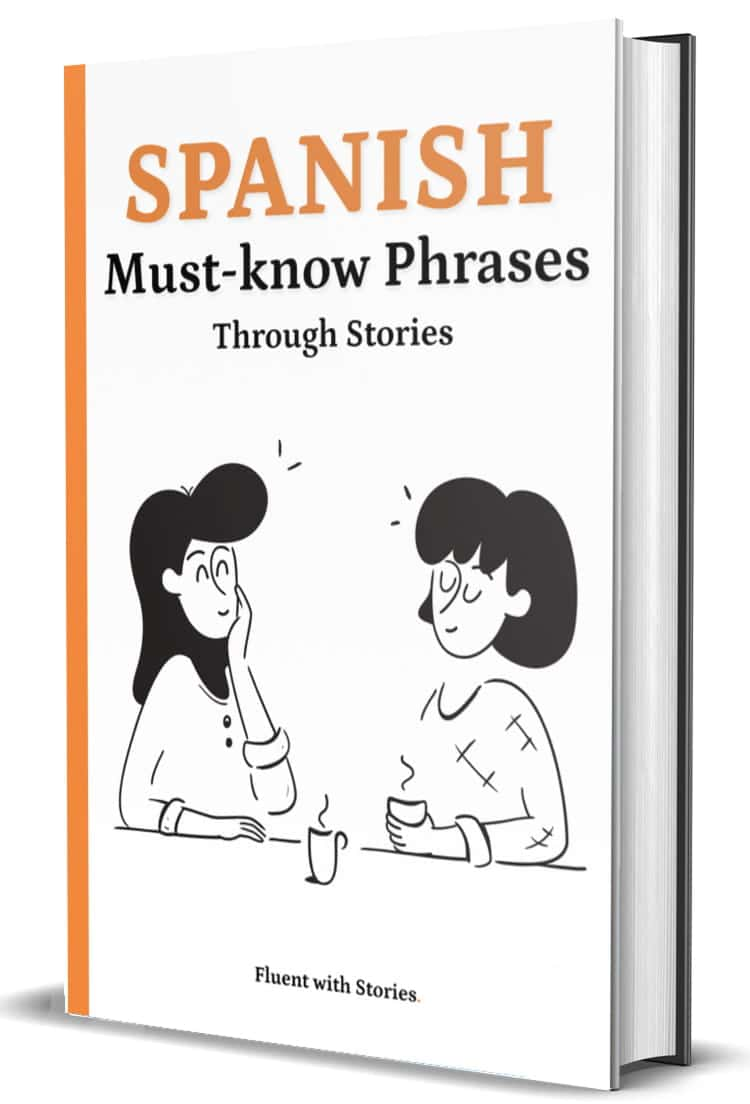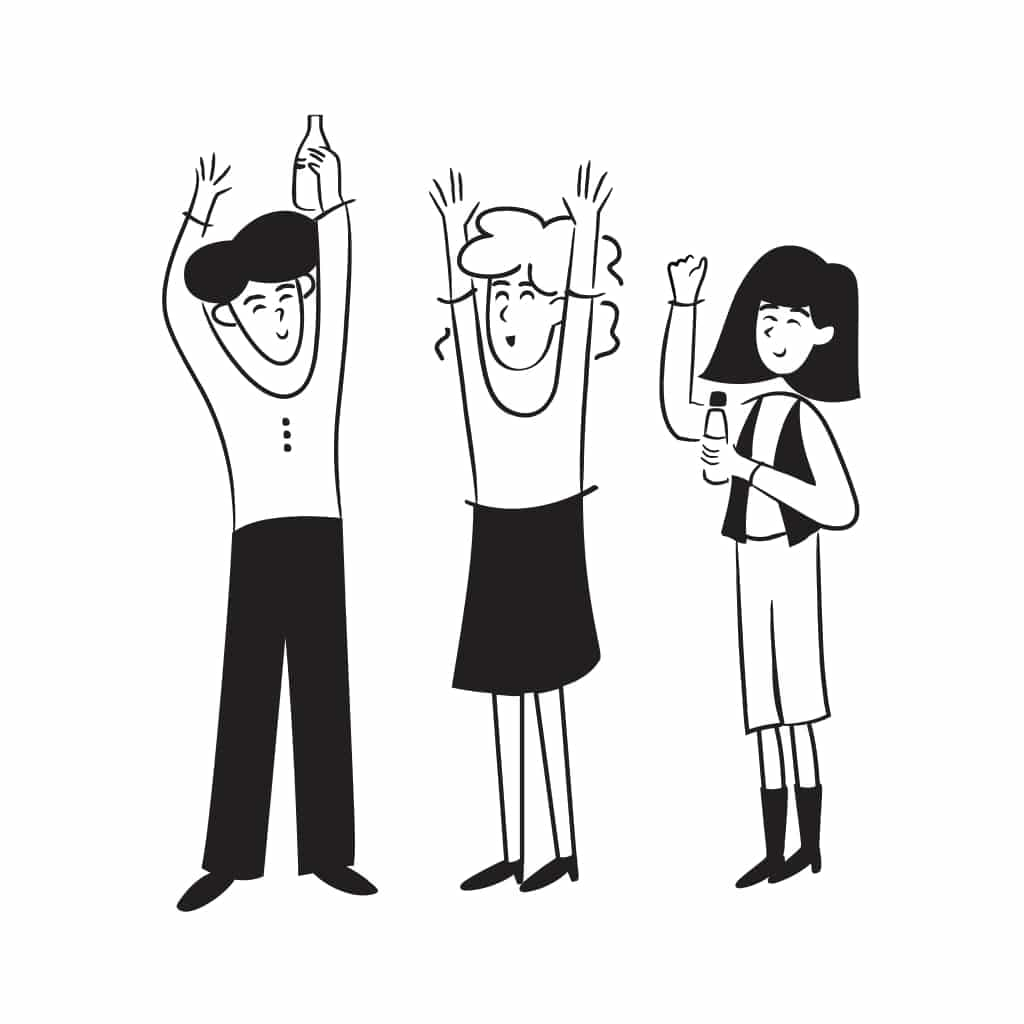This story was designed to help you learn Spanish in context, strengthen comprehension, and absorb vocabulary and grammar naturally through reading, listening, and interactive exercises. It includes a quizz, flashcards, and a writing practice to reinforce your skills. Here's how to maximize your learning:
- Listen and read the story
Play the audio while reading to follow the story naturally. Focus on understanding the main ideas and how the language sounds. The goal is to develop your Spanish listening skills and overall comprehension. - Read again with the translation
Turn on the translation and compare how ideas are expressed in Spanish and English. This builds awareness of Spanish sentence structure and grammar in real use. - Explore the key vocabulary
Below the story, you’ll find important words bolded and listed. This Spanish vocabulary list highlights key words and expressions in context and helps you understand what matters most in the story. - Take the comprehension quiz
Now test your understanding with the quiz. It reinforces the main ideas and helps improve your Spanish reading comprehension with instant feedback. - Review key vocabulary with flashcards
Use the flashcards to practice the vocabulary you just learned. This boosts memory through active recall and strengthens Spanish vocabulary retention. - Try the writing practice
Respond to the writing question related to the story. Use the new words and grammar to create your own sentences. This strengthens grammar and encourages you to think in Spanish. - Practice speaking out loud
Try saying full sentences out loud — or even read the whole story aloud if you feel ready. You can also speak along with the audio, matching the narrator’s voice as closely as possible. This is a great way to improve pronunciation and fluency while building your Spanish speaking confidence. - Review as needed
Come back to the story anytime to review vocabulary, grammar, or anything you found challenging. You can retake the quiz, replay the audio, or go through the flashcards again. Regular review helps reinforce what you’ve learned and build stronger Spanish skills over time.
Key Spanish concepts you'll encounter in this story
Grammar: Past tenses, simple present, question formation
Vocabulary: Travel terminology, family relationships, emotions
Skills: Expressing feelings, describing past events, natural dialogue
Spanish version
Elena está muy contenta.
Va a Barcelona este fin de semana para sorprender a su hija Marta por su cumpleaños.
Marta estudia en la universidad.
Elena busca su asiento 15B en el avión.
Cuando llega, ve a Javier, su ex-esposo, sentado en 15A.
—¿Javier? ¿Qué haces aquí? —pregunta Elena.
—¿Elena? Voy a visitar a Marta por su cumpleaños —responde Javier, sorprendido.
Elena habla con la azafata.
—¿Puedo cambiar de asiento?
—Lo siento. El avión está completo —dice la azafata.
Deben sentarse juntos.
Hay silencio entre ellos.
No se han visto en tres años, desde el divorcio.
Solo hablan por mensajes sobre Marta.
Después de un rato, el avión tiene turbulencia.
Se mueve mucho.
Javier toma la mano de Elena sin pensar.
Él tiene miedo de volar.
—Perdón... no me gusta volar —dice Javier, avergonzado.
Elena sonríe.
—Todavía tienes miedo de volar —dice, riendo un poco.
—Algunas cosas no cambian —responde Javier—. ¿Recuerdas nuestro viaje a Roma?
—Sí. Bebiste dos copas de vino por miedo.
—Y tú me contabas historias para distraerme.
—Todavía cierro los ojos cuando el avión despega —admite Javier.
—Lo noté —dice Elena—. Tenías la misma cara de siempre.
—¿Recuerdas tantas cosas? —pregunta Javier, sorprendido.
—Es difícil olvidar quince años juntos —responde Elena.
La tensión desaparece. Ahora pueden hablar mejor.
—¿Cómo estás? —pregunta Elena.
—Bien. Estoy aprendiendo a cocinar. Ya puedo preparar más que huevos.
—¿Tú cocinando? ¡No lo creo! —dice Elena, sonriendo.
—Sí. La vida cambia. ¿Y tú?
—Tengo un trabajo nuevo. Me gusta mucho.
Durante el resto del vuelo, hablan sobre sus vidas ahora. Ambos han cambiado.
Cuando llegan a Barcelona, toman una decisión.
—¿Vamos juntos a ver a Marta? —sugiere Javier.
—Sí, será una buena sorpresa para ella —dice Elena.
Y quizás, también para ellos.
Spanish story with English translation
Elena está muy contenta.
Elena is very happy.
Va a Barcelona este fin de semana para sorprender a su hija Marta por su cumpleaños.
She is going to Barcelona this weekend to surprise her daughter Marta for her birthday.
Marta estudia en la universidad.
Marta studies at the university.
Elena busca su asiento 15B en el avión.
Elena looks for her seat 15B on the plane.
Cuando llega, ve a Javier, su ex-esposo, sentado en 15A.
When she arrives, she sees Javier, her ex-husband, sitting in 15A.
—¿Javier? ¿Qué haces aquí? —pregunta Elena.
"Javier? What are you doing here?" asks Elena.
—¿Elena? Voy a visitar a Marta por su cumpleaños —responde Javier, sorprendido.
"Elena? I'm going to visit Marta for her birthday," responds Javier, surprised.
Elena habla con la azafata.
Elena speaks with the flight attendant.
—¿Puedo cambiar de asiento?
"Can I change seats?"
—Lo siento. El avión está completo —dice la azafata.
"I'm sorry. The plane is full," says the flight attendant.
Deben sentarse juntos.
They must sit together.
Hay silencio entre ellos.
There is silence between them.
No se han visto en tres años, desde el divorcio.
They haven't seen each other in three years, since the divorce.
Solo hablan por mensajes sobre Marta.
They only communicate through messages about Marta.
Después de un rato, el avión tiene turbulencia.
After a while, the plane experiences turbulence.
Se mueve mucho.
It moves a lot.
Javier toma la mano de Elena sin pensar.
Javier takes Elena's hand without thinking.
Él tiene miedo de volar.
He is afraid of flying.
—Perdón... no me gusta volar —dice Javier, avergonzado.
"Sorry... I don't like flying," says Javier, embarrassed.
Elena sonríe.
Elena smiles.
—Todavía tienes miedo de volar —dice, riendo un poco.
"You still have a fear of flying," she says, laughing a little.
—Algunas cosas no cambian —responde Javier—. ¿Recuerdas nuestro viaje a Roma?
"Some things don't change," responds Javier. "Do you remember our trip to Rome?"
—Sí. Bebiste dos copas de vino por miedo.
"Yes. You drank two glasses of wine out of fear."
—Y tú me contabas historias para distraerme.
"And you told me stories to distract me."
—Todavía cierro los ojos cuando el avión despega —admite Javier.
"I still close my eyes when the plane takes off," admits Javier.
—Lo noté —dice Elena—. Tenías la misma cara de siempre.
"I noticed," says Elena. "You had the same face as always."
—¿Recuerdas tantas cosas? —pregunta Javier, sorprendido.
"You remember so many things?" asks Javier, surprised.
—Es difícil olvidar quince años juntos —responde Elena.
"It's difficult to forget fifteen years together," responds Elena.
La tensión desaparece.
The tension disappears.
Ahora pueden hablar mejor.
Now they can talk better.
—¿Cómo estás? —pregunta Elena.
"How are you?" asks Elena.
—Bien. Estoy aprendiendo a cocinar.
"Good. I'm learning to cook."
Ya puedo preparar más que huevos.
"I can now make more than eggs."
—¿Tú cocinando? ¡No lo creo! —dice Elena, sonriendo.
"You cooking? I don't believe it!" says Elena, smiling.
—Sí. La vida cambia. ¿Y tú?
"Yes. Life changes. And you?"
—Tengo un trabajo nuevo.
"I have a new job."
Me gusta mucho.
"I like it a lot."
Durante el resto del vuelo, hablan sobre sus vidas ahora.
During the rest of the flight, they talk about their lives now.
Ambos han cambiado.
Both have changed.
Cuando llegan a Barcelona, toman una decisión.
When they arrive in Barcelona, they make a decision.
—¿Vamos juntos a ver a Marta? —sugiere Javier.
"Shall we go together to see Marta?" suggests Javier.
—Sí, será una buena sorpresa para ella —dice Elena.
"Yes, it will be a good surprise for her," says Elena.
Y quizás, también para ellos.
And perhaps, for them too.
Master A1 Spanish with 120+ stories
Start using Spanish in real life with our complete story-based course.
Join the waitlist for exclusive early-bird pricing.
Join waitlist



























Comments section for language learners